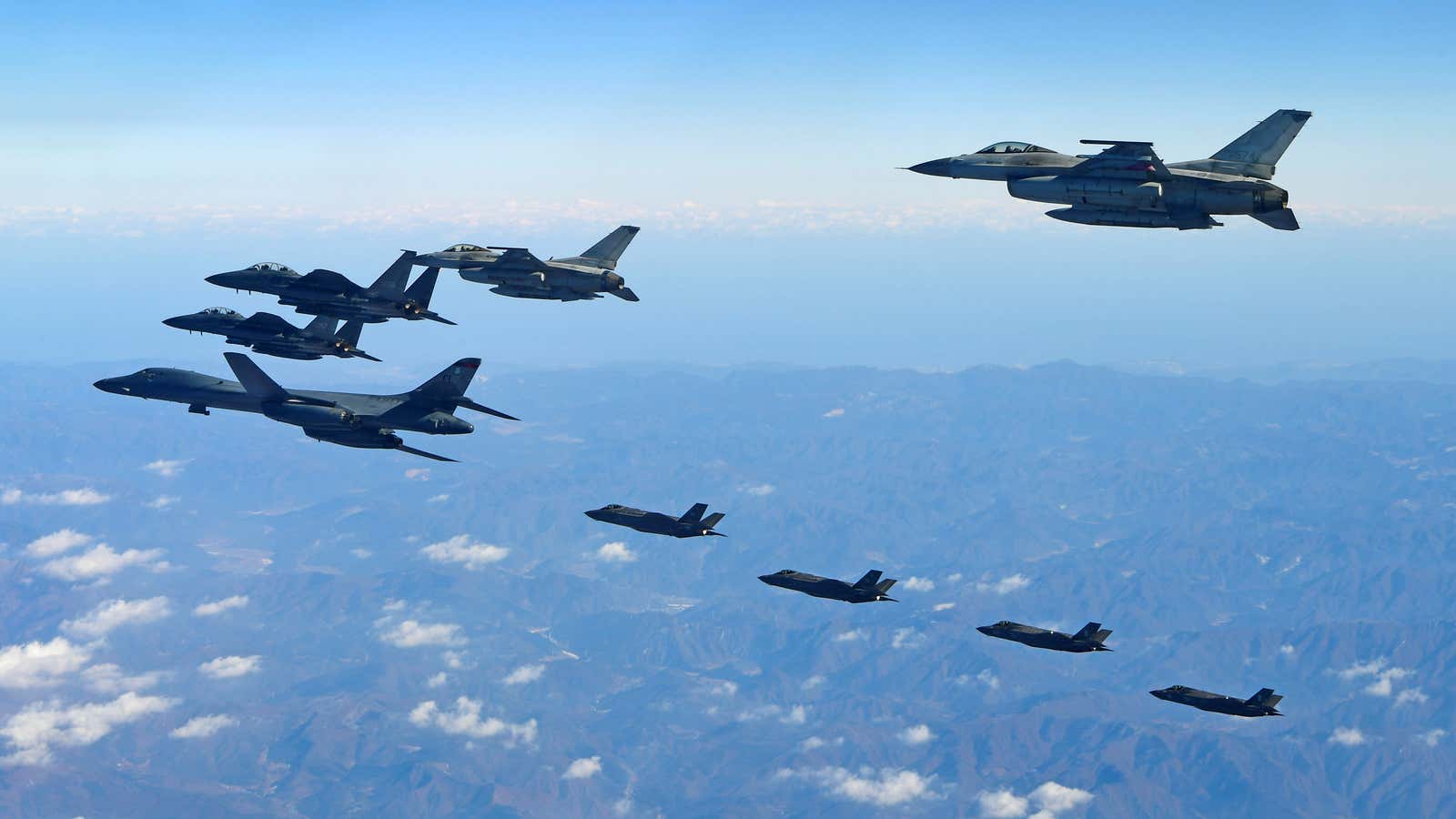Don’t worry: If the North Korea crisis escalates into a full-blown war, the casualties will mostly occur on the Korean Peninsula.
That reassurance has recently given to both American and Chinese audiences. For their part, South Koreans, who do tend to live on the Korean Peninsula, are not happy about it.
On Thursday (Dec. 7) South Korea’s foreign ministry slammed an editorial that appeared this week in the Global Times, a state-run tabloid in China. Running on Dec. 6, the Global Times piece was a reassurance to readers alarmed by a Jilin Daily article published that same day about protective measures to be taken in the event of a nuclear war. Jilin is a Chinese province that borders North Korea. The Jilin Daily piece quickly went viral on China’s internet.
By way of reassurance, the Global Times pointed out the “favorable” winter winds, which would blow any nuclear radiation toward South Korea, not northeast China. It continued:
Even if a war erupts on the peninsula, it is South Korea, Japan and the US bases in the Asia-Pacific that will likely be priority targets for North Korea. There is a slim chance that the US or North Korea will intentionally launch military attacks at China as they have no grounds. Meanwhile, as a powerful nuclear state, China will resolutely return like for like.
Of course, if you happen to be South Korean, this is all less than reassuring. The foreign ministry in Seoul quickly protested the column. Spokesman Noh Kyu-duk added, “Anyone should refrain from causing unnecessary misunderstanding or undermining peace and security with hypothetical scenarios regarding the situation on the Korean Peninsula.”
Another brouhaha erupted in August, this time after comments made by US senator Lindsey Graham were widely reported in South Korea. The Republican lawmaker said on NBC’s Today Show, “If thousands die, they’re going to die over there—they’re not going to die here.”
Many South Koreans believed that to be in line with the Trump administration’s thinking. Shortly thereafter Han Kang, a South Korean novelist who won the Man Booker International Prize for fiction last year, penned an essay for the New York Times entitled “While the US Talks of War, South Korea Shudders.” She wrote:
Now, nearly 70 years on, I am listening as hard as I can each day to what is being said on the news from America, and it sounds perilously familiar. “We have several scenarios.” “We will win.” “If war breaks out on the Korean Peninsula, 20,000 South Koreans will be killed every day.” “Don’t worry, war won’t happen in America. Only on the Korean Peninsula.”
She wrote of South Koreans:
We understand that any solution that is not peace is meaningless and that “victory” is just an empty slogan, absurd and impossible. People who absolutely do not want another proxy war are living, here and now, on the Korean Peninsula.
Of course, the Global Times column was directed at Chinese readers, and Graham’s comments at US viewers, and in an earlier era their messages might have stayed largely confined to those audiences. But in today’s media environment, word spreads quickly across borders—one notable exception being North Korea’s.
